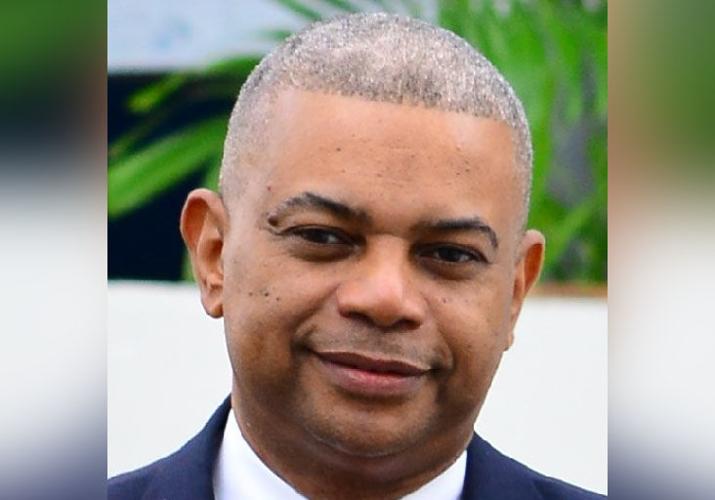(Trinidad Guardian) Clico Policyholders Group (CPG) chairman Peter Permell says Clico can easily afford to pay outstanding monies to policyholders, as it is now “extremely profitable.”
He made the comment during a radio programme yesterday, after the Central Bank announced it had relinquished emergency control of Colonial Life Insurance Company (Trinidad) Ltd (Clico) on December 1.
A press conference will be held on Tuesday, where Central Bank Governor Dr Alvin Hilaire and Clico executive chairman Claire Gomez-Miller will discuss the exit and its implications.
Permell said, “I was shocked when I got the news. In the words of late Dr Martin Luther King Jr, ‘Free at last, Free at last! Thank God almighty, Clico is free at last!’
“On behalf of the group, we’re a bit disappointed that the Central Bank has not only taken this long, some 13 years to exit Clico, but more importantly, they have done so without ensuring that the over 15,000 policyholders were paid their balance of monies contractually owed to them.
“This is particularly so in the circumstances when the Government has been repaid all the monies that were advanced to Clico as a result of the bailout.
“Clico is now in the black to the tune of billions of dollars and extremely profitable, however, we hasten to add that we’re not daunted.”
He said the group was requesting an early meeting with the Clico management and Gomez-Miller to address the situation with a view to arriving at an amicable resolution.
Permell said they had hoped their matter would have been settled before the handing over.
He explained that one of the main reasons why the Central Bank intervened was to allow policyholders to recoup the monies owed to them.
Permell said policyholders were split into two groups; the assenting policyholders and the non-assenting policyholders.
He said the group that accepted the offer fairly early by the People’s Partnership administration was paid in zero coupon bonds over a 20-year period and this was to be converted into Clico Investment Fund (CIF) units which were scheduled to be terminated on January 2, 2023.
Permell said they paid the non-assenting policyholders all their contractual liabilities and told the assenting policyholders they were not going to pay them any more money.
He said the $23 billion infused into Clico stabilised the conglomerate, adding it was no longer a threat to the financial system.
Permell is hoping the Central Bank will explain to the public and policyholders why their monies are still outstanding next week.
He said he did not get an invitation to discuss a resolution with the board, but his sources within Clico held the view that they should get their money. He said in the event they did not, they had legal recourse.
He said a legal challenge wasn’t available before because of an amendment in the Central Bank Act passed in September 15, 2011, which made Clico “untouchable.”
Permell said no policyholder, depositor or creditor could sue Clico because it was placed under the jurisdiction of the Central Bank by virtue of Section 44A of the Central Bank Act.
He said up until December 1, the floodgates were open for anyone to take legal action against Clico.
When asked about Prime Minister of Antigua and Barbuda Gaston Browne being unsatisfied with the response from Prime Minister Dr Keith Rowley, regarding the non-payment of compensation arising from the collapse of Clico and British American Insurance Company in 2009 in the eastern Caribbean, Permell said Browne’s pending court matter would be strengthened by the Central Bank’s exit.
He said he intended to attend next week’s press conference in the public and policyholders’ interest.
Meanwhile, economist Mary King said as the Central Bank releases control of Clico, citizens will be party to the demise of the local innovation of the CLF group.
She quoted Trevor Hosten, saying: “An ingenious Lawrence Duprey acquired his uncle’s home-grown Clico, steadfastly transforming it into Trinidad’s largest private company and among the Caribbean’s top 10, converting small insurance premiums into over 65 global companies in 32 countries comprising malls, 55 per cent stake in Republic Bank, distribution, Clico bank, supermarkets, methanol, vast acquisition of land and premium alcohol brands, housing development, accumulating assets in excess of TT$800 billion, employing over 5,000 and contributing 25 per cent of GDP.
“Sadly, Clico was not immune to the 2009 global downturn, which saw great leadership skills by President Obama promptly injecting bailouts to affected USA companies, saving Wall Street from further failure. But never so with Trinidad’s incompetent “leaders” callously unmindful our most indigenous entrepreneurship faces cash-flow challenges notwithstanding its enormous salvageable assets. Our business culture is indeed one strike and you are down, never to rebound again, so ably demonstrated by those bearing the authority to either sink or float the Clico behemoth.”

